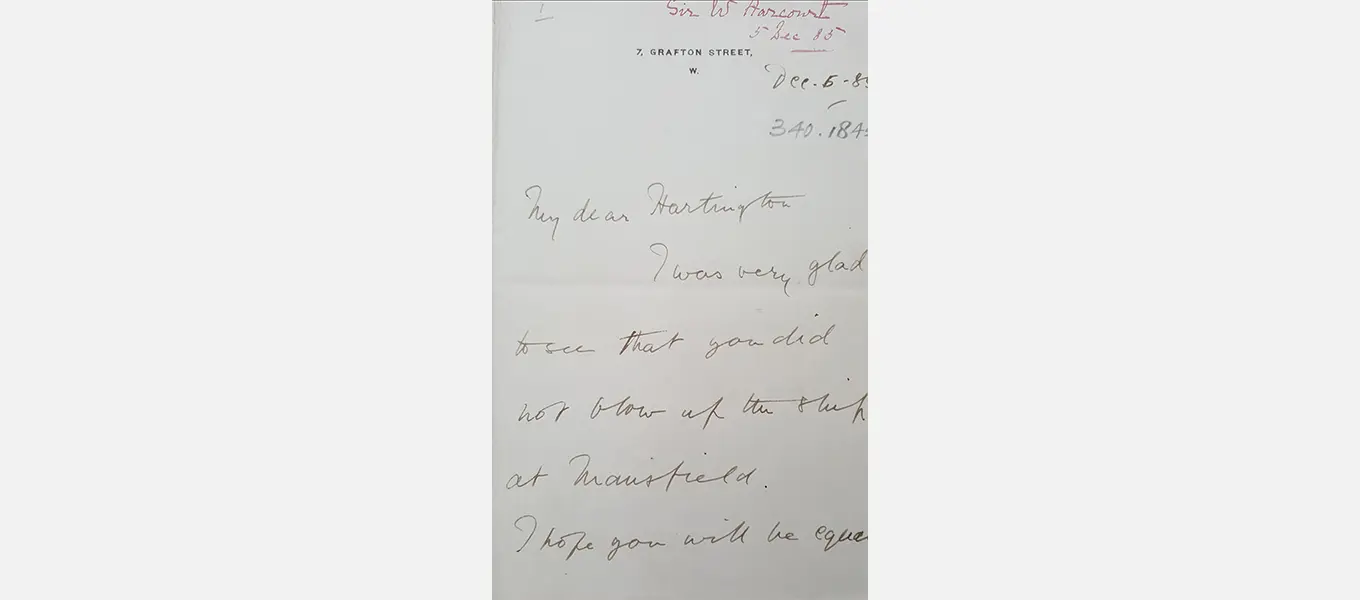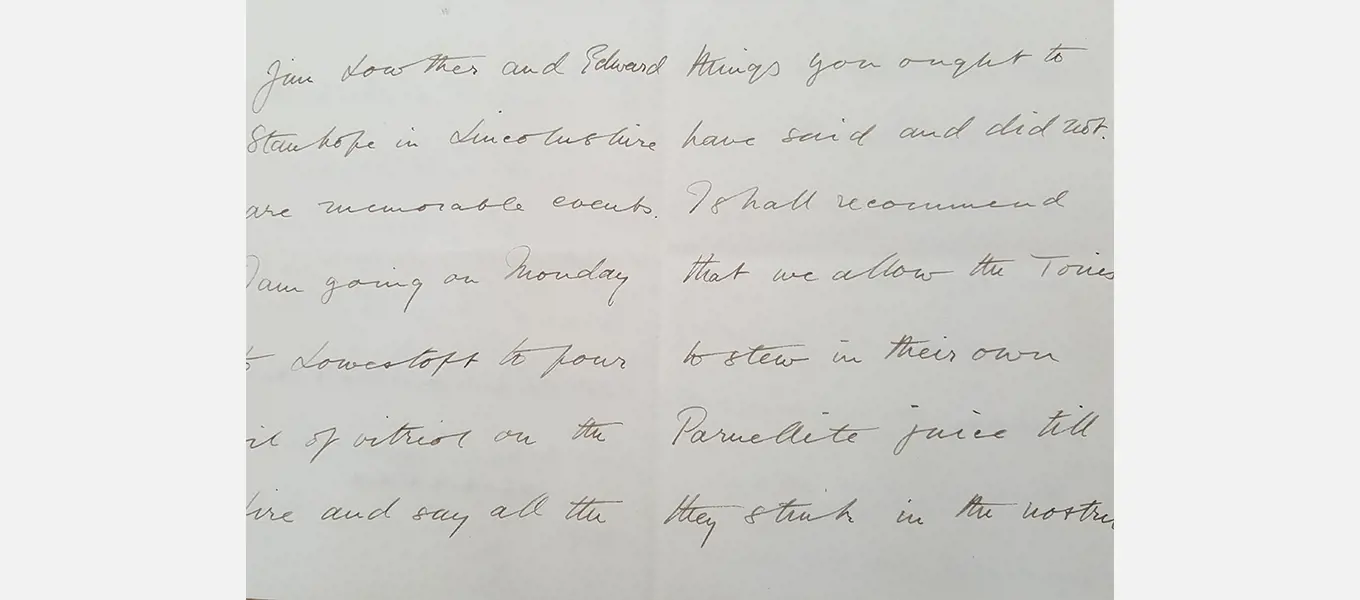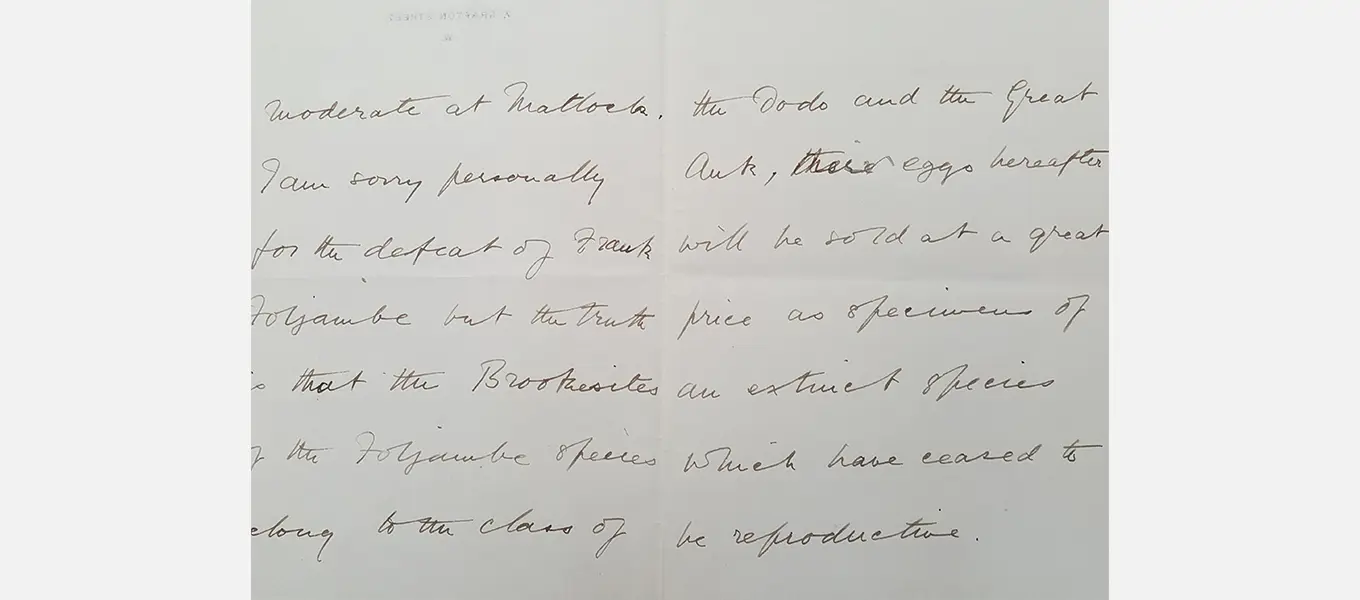Collections Volunteer Vikki O’Neill is working on a project to catalogue the 8th Duke of Devonshire’s correspondence and came across a surprising letter written by the Liberal politician Sir William Harcourt. Addressed to Spencer Compton Cavendish, then Marquess of Hartington and later the 8th Duke of Devonshire the letter is dated 5 December 1885 and concerns the General Election of that year.

First page of Harcourt’s letter to Hartington, dated 5 December 1885.
Held from 24 November to 18 December, the 1885 election is particularly important being the first after an extension of the franchise and redistribution of seats, meaning that for the first time a majority of adult males could vote. Leading up to the election one of the main political debates raging was the question of Irish Home Rule and any party in power would have had to deal with this situation, fuelled in part by the rise of the Irish Parliamentary Party led by Charles Stewart Parnell.
After learning Lord Salisbury’s Conservative Party had lost the Lowestoft seat to the Liberal Party, Lord Harcourt writes that he “shall recommend that we allow the Tories to stew in their own Parnellite juice till they stink in the nostrils of the country and then we will fling them, dishonoured and disgraced to the constituencies and make an end of Toryism for a generation”. He also added that he was going to Lowestoft himself to “pour oil of vitriol on the fire”, something he believed Hartington should have done himself.

In another part of the letter Harcourt again doesn’t mince his words. Whilst personally sorry for the defeat of the Liberal MP Francis Foljambe in the election, he shows his true colours writing “the truth is that the brookeites of the Foljambe species belong to the class of the Dodo and the Great Auk, their eggs hereafter will be sold at a great price as specimens of a great species which have ceased to be reproductive”.

The Oxford Dictionary of National Biography entry on Harcourt says that “his style was forceful; he was regarded as arrogant, and tact was not his strongest characteristic”. He was also described as “a radical without a radical background”. This certainly comes across in the letter and clashes with the moderate, reserved letters written by Lord Hartington that I have read so far. Even when writing to the Prime Minister categorically stating that he is unable to align his views over Irish Home Rule, Hartington is nothing but polite and restrained. It's very interesting to compare political letters of two very different individuals and I can’t wait to see what other gems are unearthed during the project.






